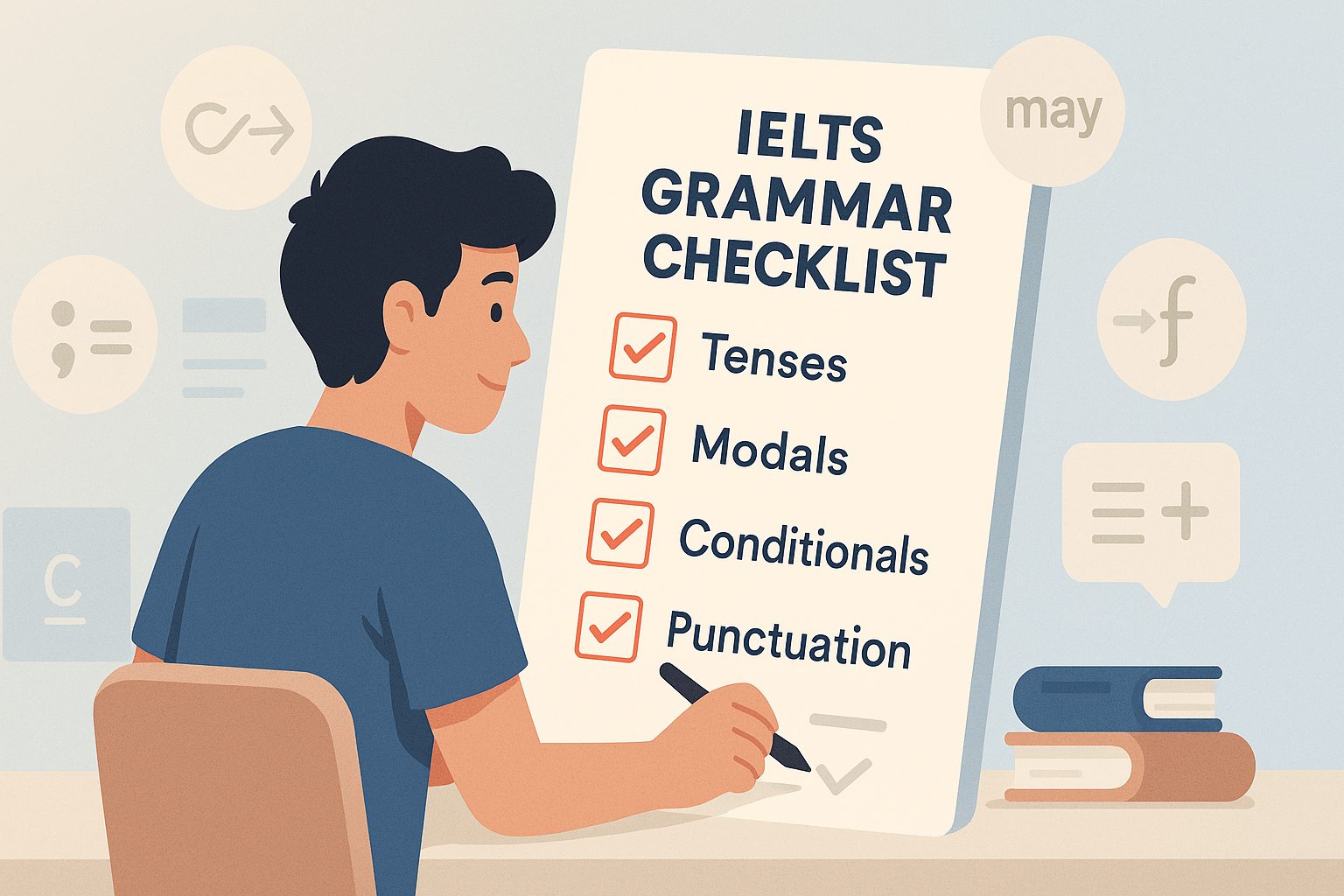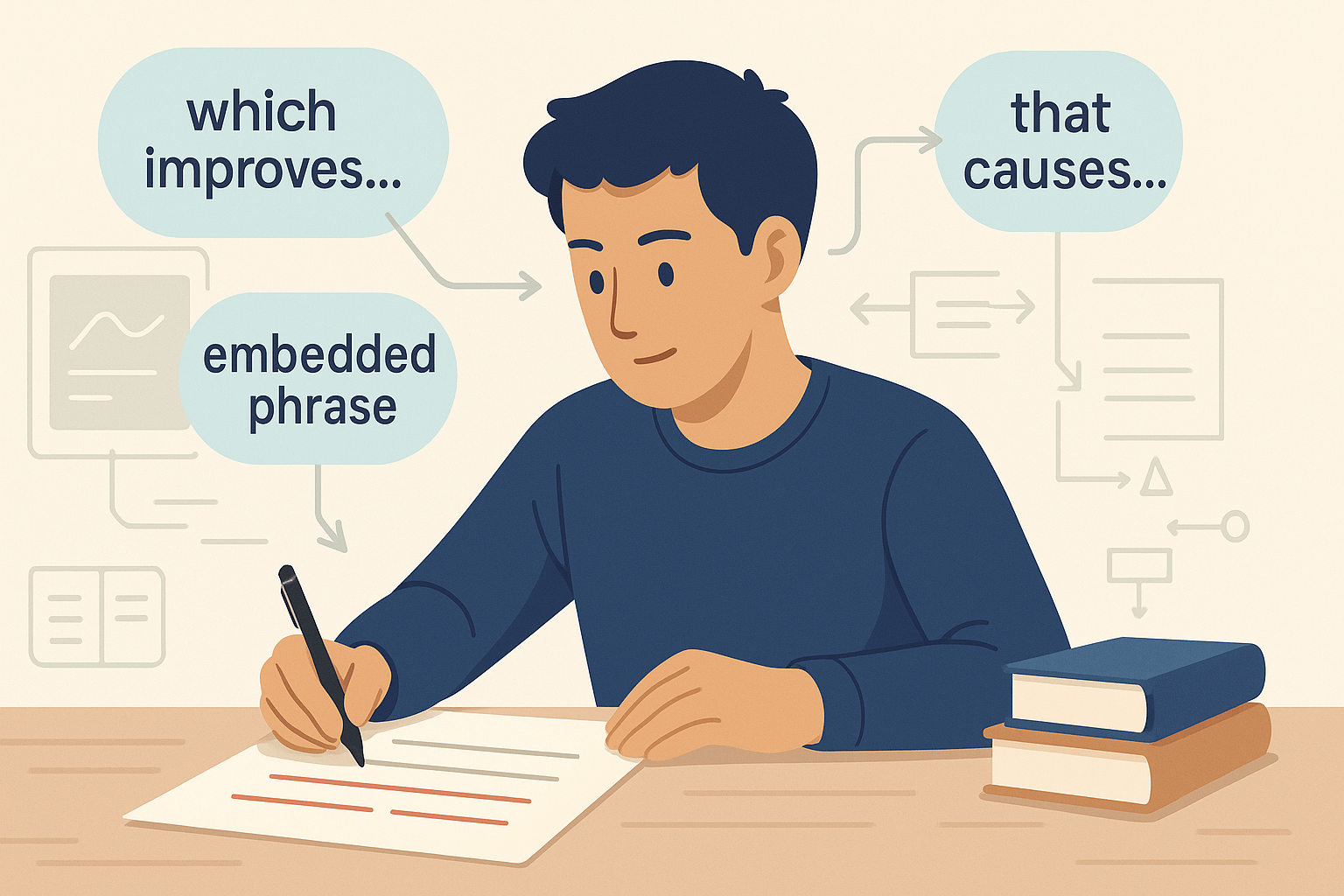When my students ask why their IELTS Writing Task 2 essays stay stuck at Band 6 or 6.5, one of the first areas I check is grammar accuracy.
Two of the most common reasons for lost marks are:
- ❌ Incorrect subject-verb agreement
- ❌ Inconsistent or incorrect tense usage
Both of these issues are part of IELTS tense accuracy and grammatical range and accuracy, which make up 25% of your writing score.
In this guide, I’ll teach you:
- ✅ How to identify and fix subject-verb agreement errors
- ✅ How to maintain tense accuracy throughout your essay
- ✅ Teacher tips and examples to reach Band 7–9
If you want to strengthen your overall grammar, start with my IELTS Writing Task 2 Grammar for Band 7–9. It’s our pillar resource for Task 2 grammar mastery.
Why Subject-Verb Agreement and Tense Accuracy Matter
IELTS examiners look for clarity and correctness in every sentence.
If your essay has basic grammar mistakes, like “The government have introduced new laws”, it:
- ❌ Interrupts the flow for the reader
- ❌ Shows limited grammatical accuracy
- ❌ Keeps you at Band 6 or 6.5
AEO Snippet Answer:
Maintaining subject-verb agreement and IELTS tense accuracy is essential for Band 7–9 in Writing Task 2 because it ensures clarity and grammatical range.
For official details on grammar scoring, visit:
Common Subject-Verb Agreement Errors
1. Treating Singular Subjects as Plural
Many IELTS students treat collective nouns (government, society, team) as plural.
Wrong:
“The government have announced new policies.”
Correct:
“The government has announced new policies.”
Teacher Tip:
Always check if your subject is singular or plural. Collective nouns are singular in formal writing.
2. Confusing Singular and Plural Forms
Wrong:
“There is many reasons why traffic is a problem.”
Correct:
“There are many reasons why traffic is a problem.”
Quick Check:
- Singular subjects → singular verbs (is, has, plays)
- Plural subjects → plural verbs (are, have, play)
3. Subjects Separated by Extra Words
Longer sentences can hide the subject, causing errors.
Wrong:
“The rise in car ownership and lack of public transport have caused traffic issues.”
Correct:
“The rise in car ownership and lack of public transport has caused traffic issues.”
Teacher Tip:
Focus on the main subject (The rise = singular).
Mastering IELTS Tense Accuracy
Maintaining IELTS tense accuracy means using the right tense consistently in your essay.
1. Use Present Tense for General Facts and Opinions
- “Technology improves communication.”
- “Pollution is a serious issue in many cities.”
2. Use Past Tense for Historical Examples
- “In 2010, the government introduced new recycling laws.”
3. Use Future Forms for Predictions and Solutions
- “If governments invest in renewable energy, pollution will decrease.”
4. Avoid Switching Tenses Randomly
Wrong:
“Pollution was rising, and cities are implementing new policies.”
Correct:
“Pollution is rising, and cities are implementing new policies.”
Teacher Tip:
Pick a tense based on the time frame and stay consistent within your paragraph.
Sample Paragraph with Correct Grammar
“The government has implemented several policies to reduce traffic congestion. These policies include expanding public transport and restricting car use in city centers. If citizens support these changes, the level of pollution will decrease in the long term.”
This paragraph shows:
- ✅ Correct subject-verb agreement (government has implemented)
- ✅ Consistent tense usage (present and future for ongoing actions and predictions)
- ✅ Complex sentence variety
Quick Practice Exercise
Fix the errors in this sentence:
“Many student in big cities uses car and create pollution.”
Suggested Answer:
“Many students in big cities use cars and create pollution.”
How to Maintain Grammar Accuracy in IELTS Essays
- Always identify the subject first before adding the verb
- Check tense consistency in each paragraph
- Read your essay aloud – errors are easier to hear
- Practice with Band 7+ model essays for structure and accuracy
Combine this skill with vocabulary variety for maximum impact: IELTS Writing Task 2 Vocabulary for Band 7–9
FAQ Section
Q1: Why is subject-verb agreement important in IELTS Writing Task 2?
It ensures grammatical accuracy, which is essential for Band 7–9 scores in writing.
Q2: What is IELTS tense accuracy?
IELTS tense accuracy means using correct and consistent verb tenses to express time logically in your essay.
Q3: How can I avoid tense and agreement errors in IELTS?
Check the subject first, maintain one tense per paragraph, and proofread carefully at the end of your essay.
Conclusion
Mastering subject-verb agreement and IELTS tense accuracy is a simple but powerful way to boost your Writing Task 2 score.
When you:
- ✅ Match subjects and verbs correctly
- ✅ Maintain tense consistency
- ✅ Proofread for small errors
… your essay will be clear, formal, and examiner-approved.
🔗 Next step: Learn how to use IELTS complex sentences naturally to reach Band 9 in Writing Task 2.






2 Responses
I do not even know how I ended up here but I thought this post was great I do not know who you are but certainly youre going to a famous blogger if you are not already Cheers
Your writing has a way of making even the most complex topics accessible and engaging. I’m constantly impressed by your ability to distill complicated concepts into easy-to-understand language.